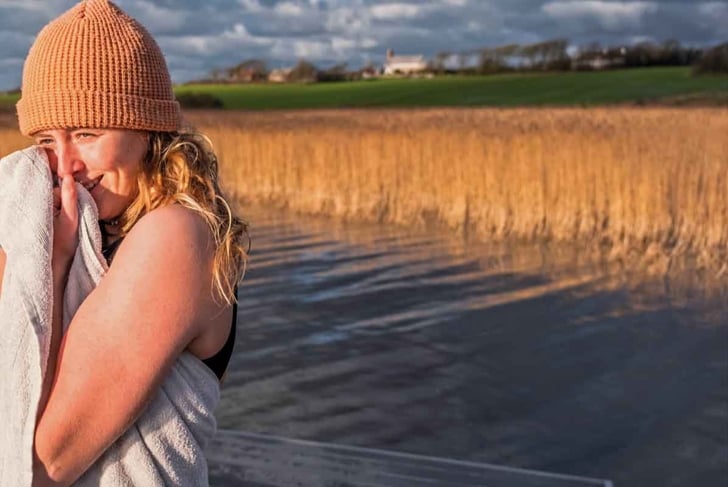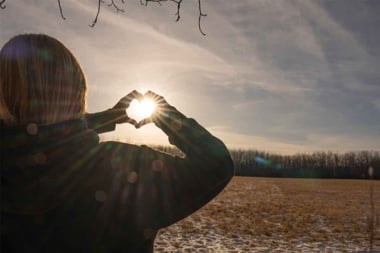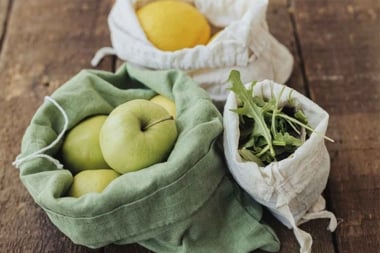The Benefits of Blue Spaces
How interactions with water can positively impact your mind and body

The thrumming of Tianne Allan’s usual migraine dissipates once she submerges her body into Vancouver’s English Bay. Judging by her relaxed demeanour, you’d never guess the water’s temperature is in the single digits. As her chest rises for a deep inhale, her eyes wander from Stanley Park’s treeline to the scattering of glass towers in the city centre. It’s this 10-minute cold plunge that sets the tone for her next 24 hours.
“It brings everything into focus, because the cold is so bracing,” Allan says. “The open sky, glorious mountains, movement of the ocean―there’s a beautiful clarity and calm that comes with being part of that.”
Nature immersion has long been found to promote psychological restoration and reduce stress. But most of these findings stem from research on green spaces. This raises the question: how do blue spaces―settings dominated by water―affect our mind and body?
Staying charged with electrolytes
While ocean water is rich with minerals, the body’s skin acts as a protective barrier that limits their absorption. For a natural boost to electrolytes like sodium, magnesium, calcium, and potassium, consider these sources:
The mental benefits
When Jody Radtke, MA, LPC, RCC, listens to a client unpack their week during psychotherapy, she isn’t staring back at them from an office chair. For the last two decades, the ecotherapist has been conducting her sessions in the open air in Squamish, BC. Helping her clients deepen their relationship with nature is Radtke’s way of illuminating their path to healing.
“The natural world is my co-therapist,” Radtke says. “Different ways of connecting with the natural world offer us different ways of accessing ourselves.”
Radtke recounts how the sounds of water lapping against rocks during a recent session helped regulate her client’s nervous system.
“When we’re walking by a river or paddleboarding in the ocean, almost everyone feels that calming depth, that sense of connectivity,” she explains. “Sitting down by a river can remind us that things change, that we can let go, we can allow, and we can flow. The metaphor of these spaces is so rich and meaningful.”
Radtke’s insight into the effects of nature on patient well-being isn’t just subjective; it’s rooted in a growing body of research. An analysis of 50 studies on the effects of blue spaces found that time spent near water enhances mental restoration, leading to lower stress, anxiety, and depressive symptoms.
The benefits of exposure to blue space aren’t just felt in the mind.
The power of water, without the shore
To reap the benefits of the ocean even if you aren’t close to the coast, consider trying these alternatives:
- Take a walk by a blue space near you. A UK-based study found that visits to canals and rivers were associated with lasting and increased mental well-being.
- Tune in to the sound of waves with an ocean noise machine.
- Take a cold shower to embrace cold therapy without having to jump into an ice bath or the ocean (but acclimatize yourself first).
The physical benefits
Cold therapy bolsters metabolism and immunity, reduces muscle-tissue inflammation, and strengthens the cardiovascular system. But immersion isn’t a prerequisite to reaping water’s therapeutic rewards.
In environments where water collides, like waterfalls or shorelines, molecules called negative air ions (NAI) are generated. While evidence surrounding the effects of NAIs is limited and mixed, a narrative review of 187 studies found that exposure to NAIs may positively change how the body processes amino acids, which can reduce inflammation, increase antioxidant activity, and boost cellular energy production.
When it comes to cold plunges, Allan acknowledges that there’s a cost to reaping water’s rewards. But she says it’s one worth paying.
“It’s never easy to do,” she says. “It’s only when you experience the exhilaration and everything that comes with it―that clarity, that being part of the ocean, the mountains, the sky―that you go, ‘I’m going to do it; it’s worth it.’”
The benefits of salt
While overconsuming salt can have adverse health effects, sodium is an essential electrolyte that keeps the body’s nerves and muscles functioning. It may also help the body fight its next cold.
A 2019 pilot study found that nasal rinsing and gargling with salt water boosted the recovery process of upper respiratory tract infections. Participants who partook in the practice recovered almost two days faster than those who didn’t, lowered the need for over-the-counter medication by 36 percent, and reduced household transmission by 35 percent.
Safety first
Ready to take the (cold) plunge in a local lake or ocean? Be sure to follow safety precautions and always bring a buddy.
This article was originally published in the September 2025 issue of alive magazine.





